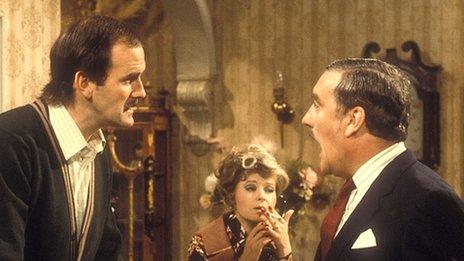Why it pays to complain via Twitter
- Published

Using social media to get a complaint heard is expected to increase in popularity
There was a time when a strongly worded letter was the only means of having your complaint heard by a company, but is tweeting now the best way to get your gripe to the front of the queue?
When Angie Konrad tweeted that the heating was switched off on her train, she did not expect the operators of that line to read the message and alert the driver to switch the heating on so she could enjoy the rest of her journey in comfort.
Twitter is enabling companies to engage in a much warmer relationship with their clientele, but when things go wrong for the customer, it is also the best way to get grievances resolved quickly and in real time says comedian David Schneider, who is also a Twitter expert and runs social media consultancy That Lot.
"If you're 29th in the queue on a phone call, only you know that. It's you and the person who's keeping you on hold. But if you tweet, it's public and it could be picked up, and I think companies are very aware of that," says Mr Schneider.
A bad review or negative comment can be retweeted by millions, and companies are often keen to defuse customer anger very quickly in a public space such as Twitter. If it is done cleverly, it can even work in a company's favour.
"I remember there was a time where there was an outage on O2 on the network and they were getting a hell of a lot of bad press," says Mr Schneider. "People were tweeting very aggressively at the O2 account and about O2 - it was trending.
"They happened to have a very skilful, self-deprecating, humorous person on their Twitter feed at that time who dealt with the abuse in a very amusing way."
Mr Schneider says it was interesting to see a wave of criticism turn to positive comments from the customers.
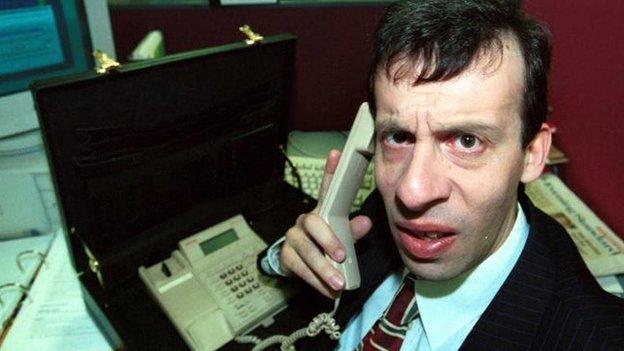
Social media expert David Schneider says complaining via Twitter is more effective than calling a company
When a complaint is treated with a personal touch, it can even go viral on Twitter. For instance one Argos customer service representative chose to reply to customer Immy "Badman" Bugti's complaint using the same street style, external he had used in his tweet.
A shortened version of the messages read: "@Argos_online: Yo, wen you gettin' da ps4 tings in moss side? Ain't waitin' no more."
"@BadManBugti: Safe Badman. We gettin' sum more PS4 tings in wivin da next week, y'get me."
The company response from Argos was retweeted over 1,500 times within the space of a few hours.
Jo Causon, chief executive of the Institute of Customer Service, says consumers are becoming much more savvy and expect organisations to relate to them as real life human beings and not simply transactions any more.
"One of the key things that we're seeing in the changing world we're all living in is that we want to have better dialogue, not just monologue, with our organisations," says Ms Causon.
According to a poll of 2,000 people by the communications agency Fishburn Hedges and Echo Research in April 2012, 36% of people had used a social media platform to contact a big company and 65% said it was a better way than call centres to get in touch with companies.
It was not just confined to the young either, with 27% of people aged over 55 having used social media to complain.
Ms Causon expects complaints via Twitter to only increase in popularity with the growth of social media.
"A lot of us at the moment are not complaining necessarily through Twitter, but as we progress, it certainly is a medium of choice, and organisations will need to be able to respond appropriately," says Ms Causon.
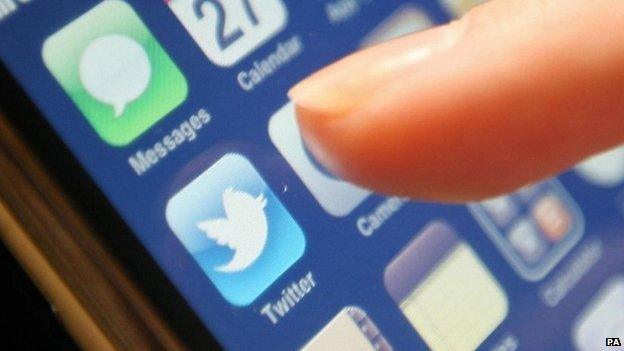
Tweeting an image along with your complaint can help get your grievance noticed
With almost 15,000 complaints a day about financial services in 2013, according to complaints data from the Financial Conduct Authority, external, Hannah Moore from BBC Radio 4's Money Box programme monitored the Twitter feeds of eight of the major banks for a working day and found problems were not necessarily resolved on Twitter, but it did help push requests to the front of the queue.
"When customers complained about hanging on premium rate phonelines, [some] staff promised to call them instead, and if you're confused about which department you need to get in touch with, Twitter's really helpful," she says.
"The best banks provided the correct phone numbers, forms and web links within minutes - again saving you time on an 0845 number."
According to Ms Causon it's important for the consumer to be responsible about choosing the right channel for their complaint too.
"A banking problem in itself doesn't necessarily lend itself to a very public place like Twitter, so I think it's about the nature of the problem and what you're looking to have resolved."
If Twitter is making it easier to complain, it also makes it easier for consumers to give positive feedback to companies too, so there is no danger we will turn into a nation of whingers.
Listen to the full report on Money Box on BBC Radio 4. Or catch up on BBC iPlayer.
- Published17 May 2012
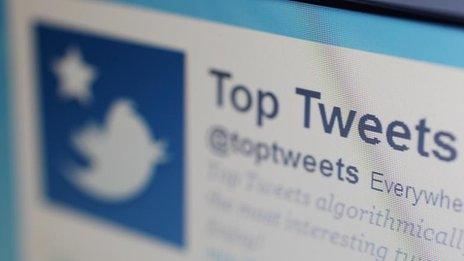
- Published13 April 2014

- Published3 September 2013
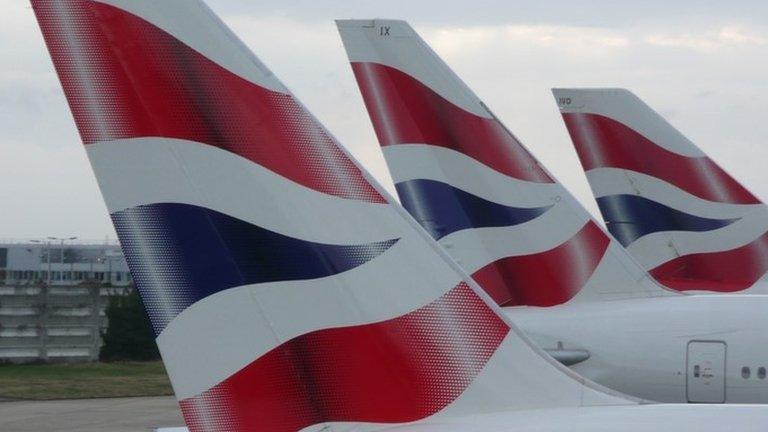
- Published23 June 2012
